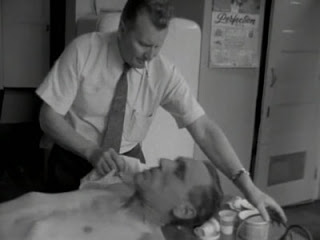Oddball Films Media
•
Aug 18, 2013
Image
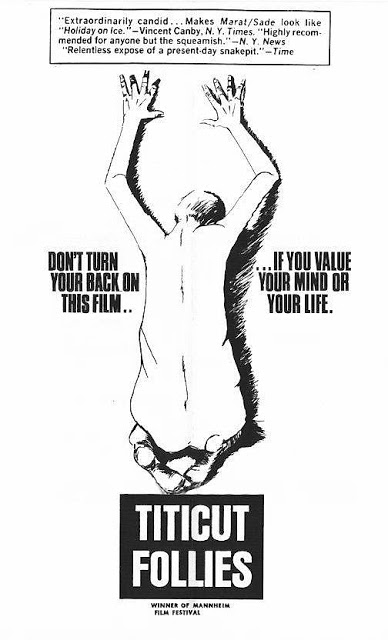
Oddball Films presents Strange Sinema 67: Oddities From the Archives, an evening of offbeat discoveries and choice rarities from the stacks of Oddball Films’ 50,000 reel film archive. This month's installment - Strange Sinema: Dangerous Minds examines a darker, edgier time in American culture revealing systemic mental and social deterioration. Our program features Titicut Follies, Frederick Wiseman’s legendary 1967 banned documentary that exposed the sordid conditions inside the Bridgewater State Hospital for the criminally insane. Wiseman’s camera watches impassively as prisoners are bullied, stripped, drugged and kept in sub-human conditions by callous and indifferent guards, social workers and buffoon-like psychiatrists. The film is intercut with some mesmerizingly surreal scenes straight out of a David Lynch film-the annual talent show "Titicut Follies" featuring the inmates (and some of the staff) in performance. The film was subjected to a lengthy lawsuits and prohibition which prevented it’s distribution. It is now considered largely responsible for instigating massive mental health reform in the United States. Wiseman later made a number of such films examining social institutions (e.g. hospitals, police, schools, etc.) in the United States. Flawlessly framed, Wiseman's style has a complete lack of narration, interviews or reflexive elements. Amos Vogel called Titicut Follies “a major work of subversive cinema and a searing indictment…of ‘the system'” in his seminal book Film as a Subversive Art. A rare film, previously banned from public screenings for over 20 years! Click here to see the trailer. Also screening will be several avant-garde shorts by the brilliant Arthur Lipsett, featuring the culturally disruptive montage Very Nice, Very Nice(1961) his first film nominated for an Academy Award and Freefall(1964) in Lipsett’s words “a vision of a world in the throes of creativity – the transformation of physical phenomena into psychological ones.”
Image
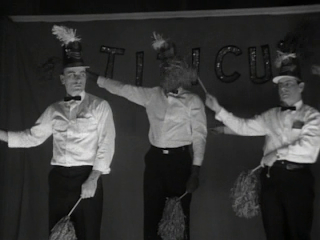
Venue: Oddball Films, 275 Capp Street, San Francisco
Admission: $10.00 Limited Seating RSVP to: 415-558-8117 or programming@oddballfilm.com
Featuring:
Image
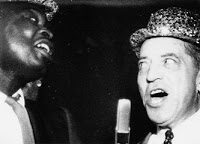
Frederick Wiseman made his documentary debut with this controversial 84-minute survey of conditions that existed during the mid-'60s at the State Prison for the Criminally Insane in Bridgewater, Massachusetts. Made in 1967, the film was subjected to a worldwide ban until 1992 because the Massachusetts Supreme Judicial Court ruled that it was an invasion of inmate privacy. The film goes behind the walls to show stark and graphic images exposing the treatment of inmates by guards, social workers, and psychiatrists. The title refers to a musical revue staged by inmates and which was named after the Wampanaog for the nearby Tauton River.
Richard Schickel, writing in Life Magazine, stated, "The repulsive reality revealed in Titicut Follies forces us to contemplate our capacity for callousness." The documentary was cited as the "Best Film Dealing with the Human Condition" at the 1967 Festival Dei Popoli (Florence) and also honored as the "Best Film" at the 1967 Mannheim International Filmweek. Robert Coles in The New Republic wrote, "After a showing of Titicut Follies the mind does not dwell on the hospital's ancient and even laughable physical plant, or its pitiable social atmosphere. What sticks, what really hurts is the sight of human life made cheap and betrayed." The story behind the complicated legal issues raised by this film and the attempts to suppress it are detailed by Carolyn Anderson and Thomas W. Benson in their book, Documentary Dilemmas: Frederick Wiseman's "Titicut Follies" (Southern Illinois University Press, 1991).- Bob Stewart, Rovi
Image

In Very Nice, Very Nice, Lipsett disrupts the representational value of documentary image and sound, moving beyond the genre's aesthetic codes of truth and reliability. Using snippets of film and audio, the
result is a sardonic re-reading of 1950s consumerism, mass media and popular culture. Nominated for an Academy Award.
Image
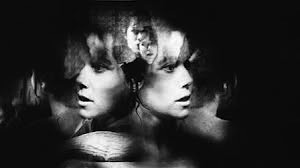
By the brilliant but troubled avant-garde filmmaker Arthur Lipsett (who committed suicide in 1986), “Free Fall” is, in the words of Lipsett himself, an “attempt to express in filmic terms an intensive flow of life – a vision of a world in the throes of creativity – the transformation of physical phenomena into psychological ones – a visual bubbling of picture and sound operating to create a new continuity of experience – a reality in seeing and hearing which would continually overwhelm the conscious state – penetration of outward appearances – suddenly the continuity is broken – it is as if all clocks ceased to tick – summoned by a big close-up or fragment of a diffuse nature – strange shapes shine forth from the abyss of timelessness.”



